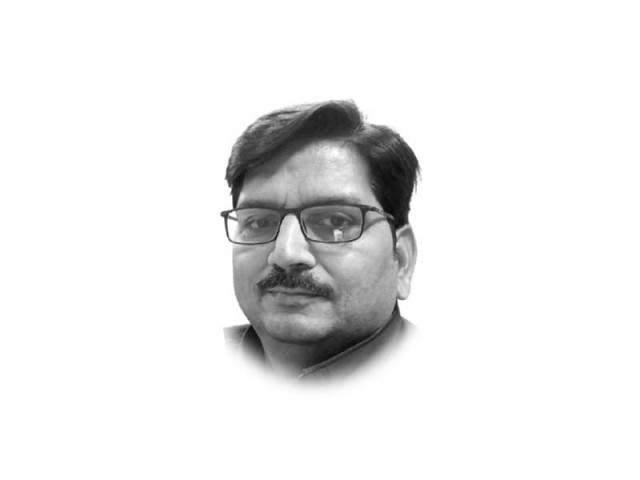Visceral politics
Visceral politics lives off the sentiments of the masses and does not use logic and reason.

Political upheaval has long been a defining characteristic of Pakistan. But in the recent past, the country's politics have been taken to visceral extremes. It is now led by raw emotions such as anger, resentment, obstinacy and vendetta rather than by rational discussion or policy deliberations. In this process, it has polarised society and weakened democratic norms, institutions and national progress.
Visceral politics lives off the sentiments of the masses and does not use logic and reason. People show "loyalty" to political figures irrespective of their performance in governance, ballooning their cult following. Rather than debating issues on economic policies, institutional reforms or foreign relations, Pakistan's political discourse has gradually converged on loyalty, identity politics, and an ingrained 'us vs. them' mentality.
This phenomenon has been further amplified by the rise of social media where critical thinking to assay news and views is put on aeroplane mode. The role of digital media in shaping public perception has given political leaders unprecedented control over their followers, enabling them to manipulate emotions with ease.
The 'emo-cratic' politics exploits public anger and fear. Political leaders consistently use the victim card, disssimulating themselves as martyrs of democracy or victims of conspiracies. Whether it is a civilian government complaining of the establishment's ambushing, an opposition party alleging electoral hijacking, or a former leader claiming persecution, the narrative is always the same: "We are being wronged." This perpetual victimhood feeds outrage in the populace.
Another key tool in visceral politics is the fear factor. The ruling elite, whether military or civilian, constantly threatens people with chaos, should they be voted out of office. The country will collapse, it is promised, without such a leader or party. Such fears strangle democratic transitions.
A hallmark of visceral politics is the breakdown of healthy political discourse. In Pakistan, debates rarely focus upon governance, economic strategy or national development. Instead, they revolve around personal attacks, accusations of treason, and moral character assassinations.
Mainstream media, too, is replete with evidence of this debasement in the form of yelling matches replacing genuine debates. A media that ought to be watchdog for the democracy has emerged as a tool to peddle hate instead of keeping citizens abreast of governance. That's why it is often gagged by political parties through legislation like Peca.
Millions out of national exchequer are spent on politicians' self-aggrandisement through their and their family's pictures and names on advertisements of public projects, merely to cement supporters' fanatic allegiance to demagogic politics. In a country born in the name of an ideology, ideological politics has gone extinct.
Visceral politics not only polarises society but also sullies institutions. The judiciary, the military, the bureaucracy and even the Election Commission have all been dragged into political controversies. When parties are in power, they defend state institutions. When the fates reverse, they accuse the same institutions of being corrupt or biased. This selective approach to institutional legitimacy weakens public trust in democracy itself.
On the remedial side, the political mindset must prioritise governance over rhetoric. Instead of fueling public emotions with dramatic speeches and conspiracy theories, they must focus on policies that address Pakistan's pressing issues - economic instability, education, healthcare and security.
The media, on its part, must uphold journalistic integrity to counter misinformation and propaganda. Instead of sensationalising political conflicts, media outlets should encourage substantive policy debates.
Most importantly, the public needs to grow in political maturity. Loyalty to a political figure in an emotional way bodes ill for democracy. Political engagement needs to be on policies and performance rather than on emotions and identities. The concept of visceral politics captures how politics has morphed into a physiological state from a socio-political concept.















COMMENTS
Comments are moderated and generally will be posted if they are on-topic and not abusive.
For more information, please see our Comments FAQ